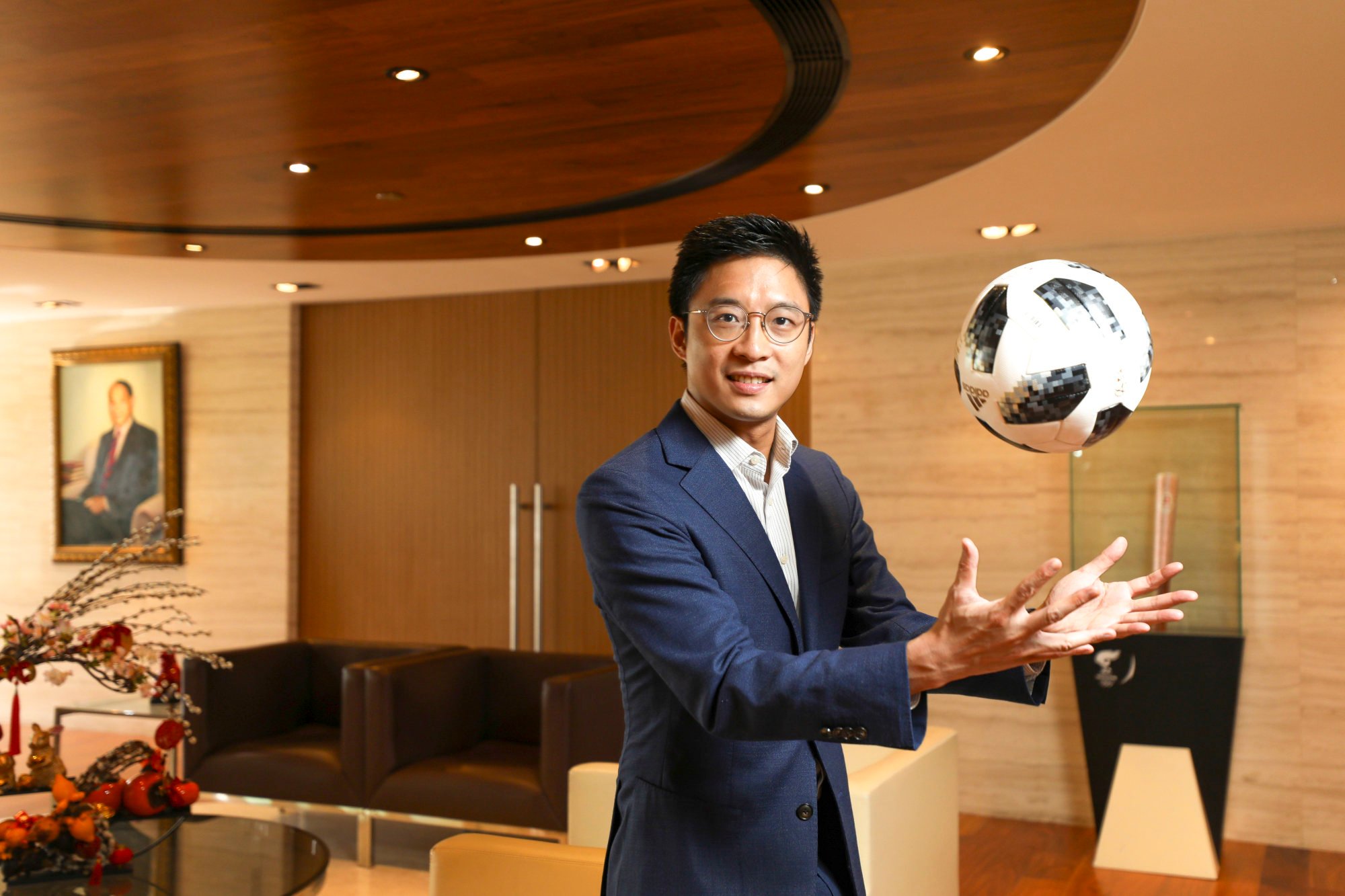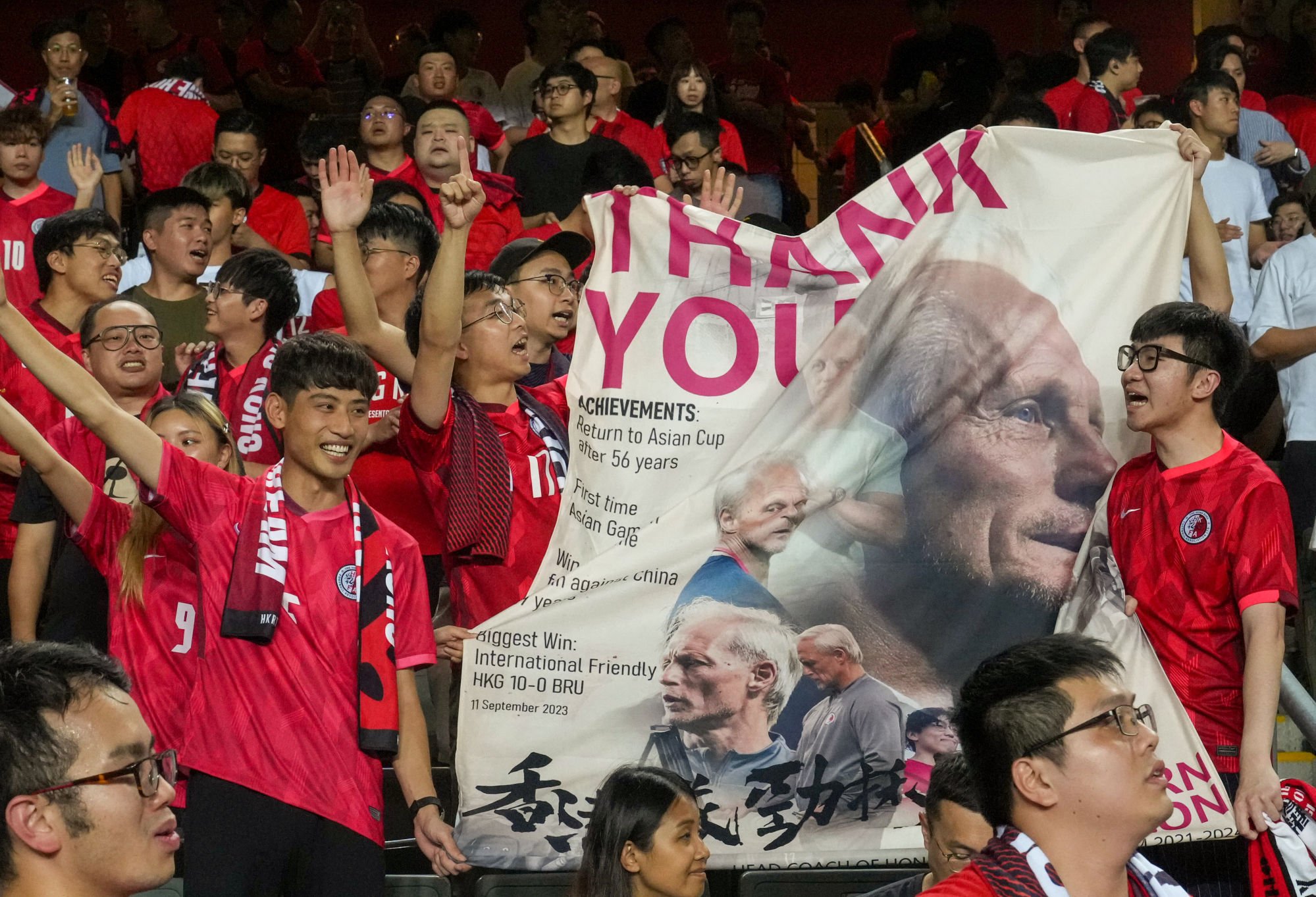After taking over in December 2021, Andersen transformed a directionless Hong Kong team into a dynamic side that qualified for this year’s AFC Asian Cup finals in Qatar.
While he made Hong Kong football feel good about itself on the surface, however, the former North Korea coach was hamstrung by a failing, poorly-run domestic scene, which attracts scant supporter interest.
An average of 576 fans watched matches in the local Premier League last season. The HKFA received HK$24.2 million (US$3.1 million) of government funds for the 2023-24 season, and Andersen believes this contributes to a lack of action from the likes of HKFA chairman Eric Fok Kai-shan, among others.
“The government supports Hong Kong football with big money,” Andersen told the Post. “It is a big problem that the HKFA don’t earn their own money. Every other association sells out stadiums, and has sponsors and big TV deals. This is how they live, not from government funding.
“In Hong Kong, we live off the government. We do nothing to get sponsorship deals, nothing to get spectators in the stadiums, and nothing to get good television deals.”
Fok was elected unopposed 12 months ago, to extend the ongoing 54-year family dynasty, after father Timothy and grandfather Henry both served extended terms as the association’s president.
Andersen said he “had a positive experience” with Eric Fok, although reiterated his dismay over the chairman staying away from the Asian Cup finals until Hong Kong’s closing match.

“He asked me a lot about what we can improve,” Andersen said. “I gave him lots of tips, so we will see what he can do for the HKFA.
“I gave people at the HKFA ideas to be better and more professional. I think they listened, but, sometimes, didn’t have the [desire] to do what I emphasised for them.
“I liked working with the people [in senior positions]. If they are the right people [for those jobs], I don’t want to comment. It is for the HKFA to answer.”
As well as searching for Andersen’s replacement, the governing body is also without a CEO, after Joaquin Tam was fired last month.
As an example of inadequate executive management, Andersen cited the Asian Cup qualifiers in India, during the coronavirus pandemic, in June 2022, when Hong Kong travelled without a doctor.
“I was the doctor, I had to decide who could play, and who couldn’t,” he said. “If I picked a player, and something [bad] happened, I was the reason.”
While in charge, Andersen offered the governing body and the city’s clubs multiple ideas for repairing the failing local football structure, but every one fell on deaf ears.

He hopes, though, the HKFA heeds his latest advice, which is to develop at least two new training centres, in addition to the 12-hectare site in Tseung Kwan O.
“We don’t have enough fields to improve young players, who are the future of Hong Kong football,” Andersen said. “The clubs need better training facilities, too, Tai Po and Rangers train on bad artificial grass, so the practice quality is very bad.”
Andersen is bewildered, too, that clubs ignored his advice to train after sunset. “I was sweating like I was in a sauna when I watched teams train,” he said. “If they train later, players can work harder and longer.”
At Hong Kong’s first game after Andersen’s resignation, against Iran this month, supporters unfurled a banner in tribute to their former boss, and repeatedly chanted his name.
“The fans are fantastic,” Andersen said. “There are more than seven million people [in the city], if we get more of them interested in Hong Kong football, it will grow. There is the potential to sell out Hong Kong games at the new stadium [Kai Tak], and to attract more sponsors, and better deals.”

